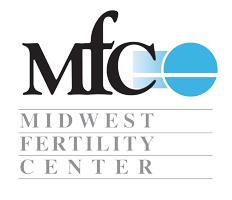Pregnancy is a miraculous journey marked by various physical and emotional changes. As an expectant mother, one of the most common questions that may arise is how many extra calories are needed to support the growing baby and maintain your own health. The notion of “eating for two” often prevails, but the reality is more nuanced. Understanding the actual caloric requirements during pregnancy is crucial for ensuring both maternal and fetal well-being. https://mfcfamily.com/
The idea of consuming significantly more calories during pregnancy is a misconception that can lead to excessive weight gain and potential health risks. While it’s true that additional energy is needed to support the growth and development of the fetus, the increase in caloric intake is relatively modest and varies depending on factors such as pre-pregnancy weight, physical activity level, and individual metabolism.
According to the American College of Obstetricians and Gynecologists (ACOG), the general recommendation for additional calories during pregnancy is as follows:
1. First Trimester: In the first trimester, there is typically no need for additional calories beyond what you were consuming before pregnancy. Nausea and morning sickness may make it challenging to eat as much as usual during this time, and that’s okay. The focus should be on eating nutritious foods to support both you and your baby.
2. Second Trimester: During the second trimester, an extra 340 calories per day are recommended. This modest increase is equivalent to a small snack, such as a yogurt with fruit or a handful of nuts. These extra calories support the growing energy needs of your developing baby and help ensure adequate weight gain.
3. Third Trimester: As your baby continues to grow rapidly in the third trimester, you may require an additional 450 calories per day. Again, this increase is relatively small and can be achieved by incorporating nutrient-dense foods into your diet, such as lean proteins, whole grains, fruits, and vegetables.
It’s important to note that these recommendations are general guidelines and may need to be adjusted based on individual circumstances. Women who are underweight or carrying multiples may require more calories, while those who are overweight or have gestational diabetes may need to be more mindful of their calorie intake.
Quality of nutrition is paramount during pregnancy. Instead of focusing solely on calories, pregnant women should prioritize consuming a balanced diet rich in essential nutrients such as protein, iron, calcium, folic acid, and omega-3 fatty acids. Nutrient-dense foods not only provide the necessary building blocks for fetal growth and development but also support maternal health and well-being.
In addition to proper nutrition, staying hydrated is crucial during pregnancy. Drinking plenty of water helps maintain amniotic fluid levels, supports circulation, aids digestion, and prevents constipation, which is common during pregnancy.
Consulting with a healthcare provider https://mfcfamily.com/or a registered dietitian is recommended to develop a personalized nutrition plan tailored to your specific needs and preferences. They can provide guidance on appropriate caloric intake, dietary choices, and supplementation if necessary.
In conclusion, while pregnancy does require additional calories to support the growing baby, the increase is relatively modest and varies throughout each trimester. By focusing on nutrient-dense foods, staying hydrated, and listening to your body’s cues, you can ensure both you and your baby receive the nourishment needed for a healthy pregnancy and optimal fetal development. Remember, it’s not about eating for two but rather eating well for you and your baby. https://mfcfamily.com/

